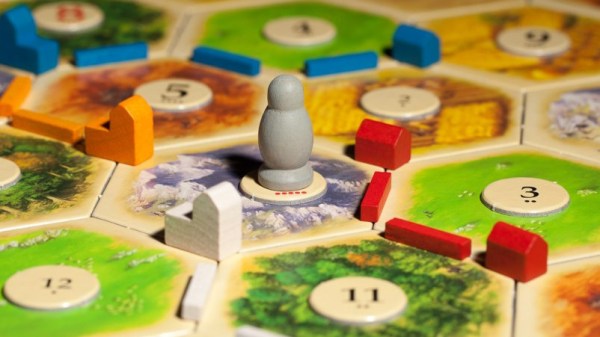Here’s a really interesting writeup by [Mike] that has two parts. He shows that not only is it possible to load wooden dice by placing them in a dish of water, but that when using these dice to get an unfair advantage in Settlers of Catan, observation of dice rolls within the game is insufficient to prove that the cheating is taking place.
[Mike] first proves that his pair of loaded dice do indeed result in a higher chance of totals above seven being rolled. He then shows how this knowledge can be exploited by a Settlers of Catan player to gain an average 5-15 additional resource cards in a typical game by taking actions that target the skewed distribution of the loaded dice.
The second part highlights shortcomings and common misunderstandings in current statistical analysis. While it’s possible to prove that the loaded dice do have a skewed distribution by rolling them an arbitrary number of times, as [Mike] and his wife do, it is not possible to detect this cheating in a game. How’s that? There are simply not enough die rolls in a game of Settlers to provide enough significant data to prove that dice distribution is skewed.
Our staff of statistics Ph.D.s would claim that [Mike] overstates his claims about shorcomings in the classical hypothesis testing framework, but the point remains that it’s possible to pass through any given statistical testing process by making the effect just small enough. And we still think it’s neat that he can cheat at Settlers by soaking wooden dice in water overnight.
This isn’t the first time we’ve seen Settlers of Catan at the center of some creative work. There’s this deluxe, hand-crafted reboot, and don’t forget the electroshock-enabled version.
[via Reddit; images from official Catan site]











